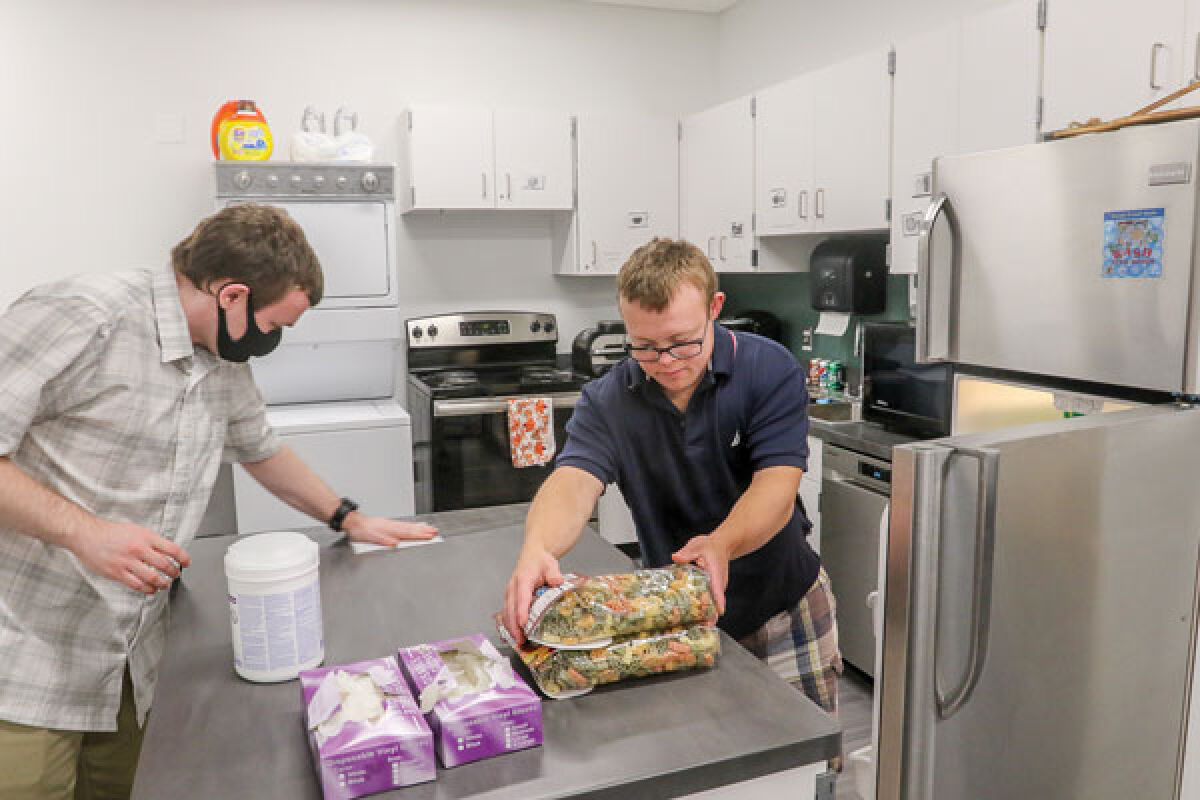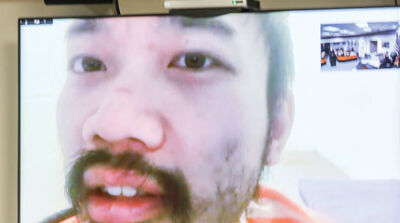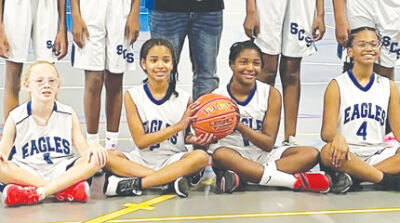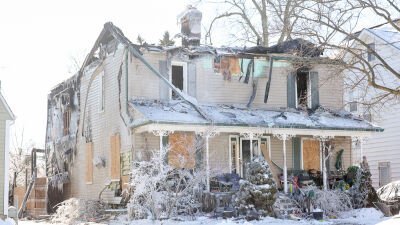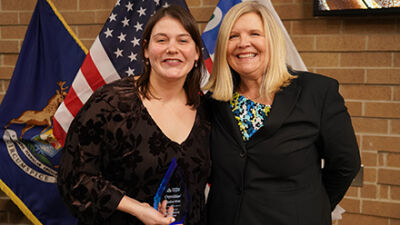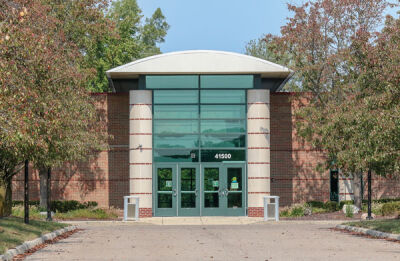
The Novi Community School District ROAR Center is located at the former Walsh Community College Novi campus. The ROAR center houses a variety of alternative education programs.
Photo by Patricia O’Blenes
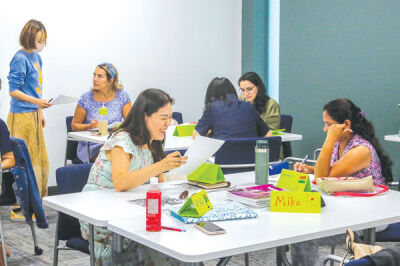
Students in an adult English as a second language class have casual conversations to practice speaking English.
Photo by Patricia O’Blenes
NOVI — The Former Walsh College Novi campus has now become home to several important programs offered by the Novi Community School District.
The district purchased the building, located at 41500 Gardenbrook Road, last year and has transformed it into its Robotics, Online learning and Adult Readiness Center.
“It made sense for us (as a district) because we can use it now, and (the district) just wanted to be prepared for now and anything foreseeable in the future. No reason not to buy an available building that you don’t have to build from scratch,” said George Sipple, public relations officer for the Novi Community School District.
The ROAR Center, as it is known, houses the district’s adult English as a second language program, the alternative high school program for ages 16-21, the adult high school program to acquire a diploma, GED diploma preparation classes, classes for students ages 18-26 who have special needs and the K-12 virtual school offices, and it is the future home of the district’s robotics program.
The district educates about 300 adult ESL students each year, according to adult education Director Linda Cianferra. The district offers five different levels of language instruction at no cost to the students, along with a variety of low-cost, tuition-based classes for more advanced adult ESL students.
According to Cianferra, the district’s adult ESL students bring approximately 50 different languages to the program. The district places the students together by their professions, rather than by their native languages.
“We’re the only adult ed program in the entire state who has their own curriculum,” Cianferra said. “It’s not where you hire somebody and go teach. It’s here’s level 1, level 2, level 5, and we did that to align with curriculum standards for WIOA, which is the Workforce Innovation and Opportunity Act.”
Along with teaching ESL, the district teaches job skills and how to write a resume, and it teaches other subjects such as the holidays celebrated in the United States. Cianferra said that part of the program is civics instruction, and the other part of it is to get students job-ready.
“Most of them come here pre-degreed, meaning they have a degree from their home country, but don’t have a visa to work,” said Cianferra. “The goal is everyone should be able to speak the language so they can then go through training and obtain life-sustaining income so that they can support themselves.”
The alternative education program is also housed at the ROAR Center. The program provides an opportunity for students ages 16-21 who were not able to stay in the regular high school program to have a second chance to complete their programs.
Cianferra has contracted with Michigan Works to hire an employee to work with all the ESL and alternative high school students to help them secure work. The program also offers paid internships to students in a vocation in which they have expressed interest.
“The idea is to put the career in front of them — let them see what it is really like, is this what they really want to do. If they don’t like that, they can do a different one, but the whole point is we give them the incentive by paying them to participate in a career that they are interested in so that once they leave us, we are putting them in a direction,” Cianferra said.
Cianferra said the ROAR Center’s location is perfect, as it is in the backyard of Walled Lake and Farmington Hills while still being in Novi. She said her goal is to attract students from all those communities who need support. Unlike Novi’s public education program, the alternative education programs are open to people from around the area, not just those within the district’s boundaries.
“The alternative program has been around since the ’70s, but it is the best-kept secret in Novi. Nobody knows about it. You talk to a Novi resident, and they are going to tell you we didn’t know we had an alternative program,” Cianferra said.
At the ROAR Center, students ages 18-26 who have special needs are assisted in learning life skills such as fundamental math and basic home economics skills. The center offers the students the chance to apply these skills in a classroom that is designed to replicate a studio apartment. The students learn everything from cooking to how to make a bed.
The district’s Virtual School has been highly successful and blossomed throughout the pandemic and after. The offices for the program, which is now open to students in a few select outside districts, offers students the chance to learn without being confined to a classroom.
“At the end — between live, independent and on-demand work — it all adds up as the same amount of time as an in-person student would learn. It is just done with a little more flexibility,” said Emily Pohlonski, principal of the NCSD Virtual School.
Once the new Novi Meadows 5-6 school building is completed, the program for students with special needs is expected to move into the old school building and the robotics program will be housed in the ROAR Center.
 Publication select ▼
Publication select ▼